Male Breast Augmentation in Cape Town
Search and Compare the Best Clinics and Doctors at the Lowest Prices for Male Breast Augmentation in Cape Town

Find the best clinics for Male Breast Augmentation in Cape Town
No pricing info available
Turkey offers the best prices Worldwide
Price: $ 2
Dr Dawid Potgieter, located in Syfred Douglas St, Cape Town, South Africa offers patients Male Breast Augmentation procedures among its total of 90 available procedures, across 1 different specialties. Currently, there's no pricing information for Male Breast Augmentation procedures at Dr Dawid Potgieter, as all prices are available on request only. All procedures and treatments are undertaken by the lead specialist at the Hospital, and they have multiple recognized accreditations, including: HPCSA - Health Professions Council of South AfricaDepartment of Health, Western CapeFCS(SA) - Fellowship of the College of Surgeons of South Africa
- Home
- South Africa
- Cape Town
Compare Before & After Photos of _procedure_photos.phpMale Breast Augmentation
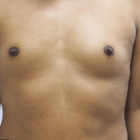
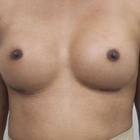
Front view
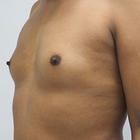
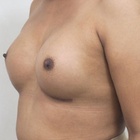
Front view
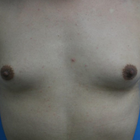

Front view
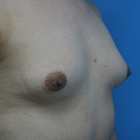

Half-side view
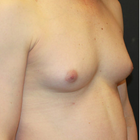
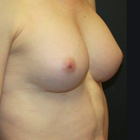
Half-side view
WHY US?
At Medijump, we're making medical easy. You can search, compare, discuss, and book your medical all in one place. We open the door to the best medical providers worldwide, saving you time and energy along the way, and it's all for FREE, no hidden fees, and no price markups guaranteed. So what are you waiting for?

Free

Best Price

Widest Selection

Risk-Free
What you need to know about Male Breast Augmentation in Cape Town
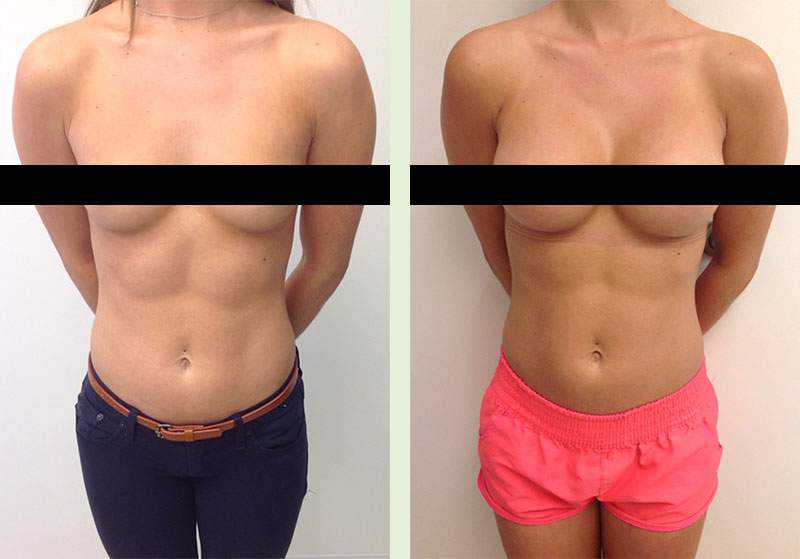
Male breast augmentation is a cosmetic procedure to enlarge the male’s breasts by inserting a breast implant. It is usually done on a male to female surgery to give patients contoured feminine breasts.
The procedure is also done to enhance the pectoral muscles on men whose chests do not seem to respond to exercise or men with Poland’s syndrome. The intervention is often preferred by individuals who wish for a chest that looks more chiseled and symbolizes masculinity. The usual method entails placing implants beneath the pectoral muscles.
What is the cost of Male Breast Augmentation in Cape Town?
The expense associated with Male Breast Augmentation within Cape Town fluctuates based on several variables such as the surgeon's level of skill, the intricacy of the operation, the kind of implants employed, and the physical location of the clinic. Therefore, it’s essential to converse in-depth with your medical provider to comprehensively comprehend the total expenditure related to the procedure.
Insurance plans generally don't cover Male Breast Augmentation; however, some medical facilities provide patient-friendly finance choices. It's vital to assess the pros and cons in correlation with your personal financial health strategies and determine how it aligns with your budget. Investing in your self-perception and physical appearance can potentially provide invaluable long-term benefits.
What Does the Procedure Involve?
Male breast augmentation is carried out under general anesthetic. Your surgeon starts by making an incision in an inconspicuous area, usually under the breast along the natural skin fold, to make sure the scar is unnoticeable. Then, they place the implant either under the chest muscles or behind the breast tissue. The implants can be made from silicone gel or saline, and the size is adjusted based on your preferences.
How Long Should I Stay in Cape Town for a Male Breast Augmentation Procedure?
The length of your stay in Cape Town after a Male Breast Augmentation is subject to certain variables. Generally, individuals are cautioned to remain in the vicinity for around a week or two following the surgery. This time frame accommodates the preliminary healing stage and facilitates the management of any immediate complications post-procedure.
In this time, your doctor will keep track of your recuperation process via planned follow-up visits. These check-ups serve as a vehicle to monitor the healing process, extract stitches, and check for any signs of infection or inherited issues. Adherence to this schedule of revisits is of utmost importance.
However, it is crucial to remember that everyone's healing experience is individual. Aspects such as age, overall physical wellness, and the degree of observance to the instructions given after the procedure can sway your recovery. Some people might necessitate an extended stay in Cape Town, particularly if they encounter any complications or if their recovery pace is slower than anticipated. Therefore, it's imperative to have a conversation about this with your surgeon, who can furnish a more precise timeline based on your particular circumstance, promoting a secure and effective recuperation.
What's the Recovery Time for Male Breast Augmentation Procedures in Cape Town?
You may feel uncomfortable for the first few days and your doctor will give you pain medication to manage the discomfort, so you may need to rest as much as possible during this period. The recovery period until you can go back to your normal routine (including intense exercise) may take about 4 to 6 weeks, but you should be able to return to work within 1 or 2 weeks.
Following the operation, it's fairly common for patients to feel some discomfort, along with swelling and bruising. These are standard postoperative signs that will slowly fade with time. Medical practitioners commonly prescribe pharmaceutical drugs to manage pain and to reduce bruising during this timeframe. Regular doctor visits for postoperative reviews are suggested to keep track of the healing process and promptly deal with any arising complications.
Furthermore, it's advised to avoid demanding activities such as heavy weight lifting and intense exercises for a minimum of four to six weeks after the treatment. This precaution ensures optimal healing of the chest area and minimizes the probability of post-surgical complications. Always remember, healing requires time and patience. Although resuming daily activities is important, giving your body the required time to fully recuperate from the operation is equally crucial.
What sort of Aftercare is Required for Male Breast Augmentation Procedures in Cape Town?
It is important to follow your surgeon’s post-operative instruction to avoid any complications and to make sure that the wounds will heal properly. Your surgeon’s instruction may include restrictions, diet, exercise, and wound care. Since some implants need to be replaced after about 10 years, make sure you attend regular checkups with your local doctor.
Keeping regular check-ins with your medical professional is essential to keep track of your recovery journey, modify your post-treatment care if required, and tackle any arising issues swiftly. The post-treatment regimen also consists of particular instructions related to physical movement and workout. Mild physical exercise might be recommended for better blood flow, but demanding activity or chest-focused exercises are generally not permitted for a specific amount of time.
What's the Success Rate of Male Breast Augmentation Procedures in Cape Town?
In general, the success rate of male breast augmentation is similar to female breast augmentation, which is around 90% to 98%. This is notably high.
The advancements in medical surgery technology, coupled with the proficiency of the medical experts, generally result in a noticeable enhancement in the physical aesthetics and self-assurance of the majority of males who opt for this procedure. Furthermore, due to the refined chest shape and muscle outline achieved, patients have reported a significant level of satisfaction.
However, akin to other medical interventions, the effectiveness of a Male Breast Augmentation is largely influenced by personal variables. These could comprise the overall wellbeing of the patient, the way their body reacts to the surgery, the surgeon's skill, and compliance with guidelines for care post-surgery.
Are there Alternatives to Male Breast Augmentation Procedures in Cape Town?
Surely, other choices exist for Male Breast Augmentation techniques in Cape Town. One such approach entails embarking on natural chest enhancement. This involves a regimen of chest workouts and a nutritional program aimed at boosting the bulk and power of the pectoral muscles. Though this pathway may be more time-consuming, it could provide a gradual, naturally appearing augmentation in chest size without the price tag and potential hazards tied to surgery.
Hormonal therapies present another viable alternative, particularly for transgender men. These therapies seek to encourage the formation of male secondary sexual traits, such as an uptick in muscle mass, body hair, and a more profound voice. However, it's crucial to consult a medical practitioner before beginning these therapies due to the potential side effects.
Lastly, some men might select a non-surgical technique like the injection of fillers or fat transfer to enhance the contour and fullness of the chest. However, these procedures yield temporary outcomes and may necessitate repeat procedures. It is advisable to consult with your surgeon about these alternatives.
What Should You Expect Before and After the Procedure
Before undergoing the Male Breast Augmentation, your healthcare professional will assess your medical history, carry out physical assessments, and converse about your cosmetic objectives to evaluate if you're fit for the procedure. Various diagnostic examinations may be necessary to ascertain your general health condition. Your surgical specialist will provide information about the impending procedure, discuss anticipated risks, and outline the probable result. Those who smoke will receive advice to stop several weeks prior to the procedure as nicotine may obstruct the healing process. Additionally, you might be instructed to adhere to specific dietary guidelines and discontinue certain medications.
Soon after the Male Breast Augmentation, it's common to experience some discomfort, inflammation, and bruising in the chest region. This usually decreases steadily over time. Over-the-counter drugs can be used to alleviate the discomfort. Typically, the use of a supportive compression garment is suggested to reduce swelling and aid the new chest shape during the recovery phase.
What are the Potential Risks of Male Breast Augmentation?
Although most patients are happy with the outcome of the surgery, it is important to be well-informed about the side effects and risks before you decide to have it, which are:
- Bleeding and infection
- Seroma
- Hematoma
- Asymmetry and dissatisfaction
- Implant shifting or displacement
- Numbness of the upper arm
- Unfavorable scarring
- Allergic reaction to the anesthesia.
Whilst the information presented here has been accurately sourced and verified by a medical professional for its accuracy, it is still advised to consult with your doctor before pursuing a medical treatment at one of the listed medical providers
No Time?
Tell us what you're looking for and we'll reachout to the top clinics all at once
Enquire Now

Popular Procedures in Cape Town
Price on Request

Prices Start From $692

Prices Start From $556

Prices Start From $2,473

Recommended Medical Centers in Cape Town for Male Breast Augmentation

- Interpreter services
- Translation service
- Religious facilities
- Medical records transfer
- Medical travel insurance
- Health insurance coordination
- TV in the room
- Safe in the room
- Phone in the room
- Private rooms for patients available

- Interpreter services
- Translation service
- Religious facilities
- Medical records transfer
- Medical travel insurance
- Health insurance coordination
- TV in the room
- Safe in the room
- Phone in the room
- Private rooms for patients available

- Interpreter services
- Translation service
- Religious facilities
- Medical records transfer
- Medical travel insurance
- Health insurance coordination
- TV in the room
- Safe in the room
- Phone in the room
- Private rooms for patients available

- Interpreter services
- Translation service
- Religious facilities
- Medical records transfer
- Medical travel insurance
- Health insurance coordination
- TV in the room
- Safe in the room
- Phone in the room
- Private rooms for patients available

- Interpreter services
- Translation service
- Religious facilities
- Medical records transfer
- Medical travel insurance
- Health insurance coordination
- TV in the room
- Safe in the room
- Phone in the room
- Private rooms for patients available

- Interpreter services
- Translation service
- Religious facilities
- Medical records transfer
- Medical travel insurance
- Health insurance coordination
- TV in the room
- Safe in the room
- Phone in the room
- Private rooms for patients available

- Interpreter services
- Translation service
- Religious facilities
- Medical records transfer
- Medical travel insurance
- Health insurance coordination
- TV in the room
- Safe in the room
- Phone in the room
- Private rooms for patients available

- Interpreter services
- Translation service
- Religious facilities
- Medical records transfer
- Medical travel insurance
- Health insurance coordination
- TV in the room
- Safe in the room
- Phone in the room
- Private rooms for patients available

- Interpreter services
- Translation service
- Religious facilities
- Medical records transfer
- Medical travel insurance
- Health insurance coordination
- TV in the room
- Safe in the room
- Phone in the room
- Private rooms for patients available

- Interpreter services
- Translation service
- Religious facilities
- Medical records transfer
- Medical travel insurance
- Health insurance coordination
- TV in the room
- Safe in the room
- Phone in the room
- Private rooms for patients available
Male Breast Augmentation in and around Cape Town
About Cape Town
Cape Town is the legislative capital of South Africa and is also known as the Mother City. It is the oldest city in the country and home to the Parliament of South Africa and is a major destination for immigrants and expatriates, making it one of the most multicultural cities in the world. Located on the shore of Table Bay, the city is known for its harbor, natural setting, as well as famous attractions and many tourists, visit to enjoy Table Mountain and Cape Point.
Recently, tourists also come to the city for its medical tourism. Many groundbreaking procedures and medical research in South Africa, such as the world’s first penile transplant, have put Cape Town under the radar of medical tourists from all around the globe. Thanks to its world-class healthcare and world-renowned medical practitioners, more and more people now prefer Cape Town as their medical destination. The healthcare in the city is among the best on the African continent. Other reasons such as shorter waiting times for surgeries, state-of-the-art equipment, and affordable healthcare compared to Europe and the United States, and English-speaking doctors.
Popular Areas in Cape Town
Cape Town is a natural beauty that offers a wide range of things to do and see. From culture, food, art, to nature. Listed below are some of the more popular places in the city:
- Table Mountain is one of the New 7 Wonders of Nature and it is easy to see why. The iconic mountain makes an amazing backdrop to Cape Town. The level plateau is about 3 kilometers from side to side with remarkable cliffs on the edges. The peak offers an amazing view of the city. Tourists can choose to board the cable car or discover its beautiful nature by hiking.
- Cape of Good Hope is situated within the Table Mountain National Park. The area has a mix of bio-diversity and wonderful beauty that attracts thousands of tourists to visit. There are around 250 species of birds spotted in the area. Hiking and cycling through it is the best way to discover its true majesty. Tourists can picnic and birdwatch in isolated beaches.
- Kirstenbosch National Botanical Garden is one of the most incredible botanic gardens in the world. Nestled at the eastern foot of Table Mountain, it features a natural forest and fynbos flora and sprawls around 528 hectares. The garden displays a collection of diverse South African plants with seasonal festivals such as musical sunset concerts during summer and craft markets on the last Sunday of every month.
- Groot Constantia is the oldest wine-producing estate in South Africa, located in the suburb of Constantia. The estate consists of a museum, restaurants, tasting room, and cellars. The museum was built in Cape Dutch architecture style, further into the estate; tourists will find the free orientation center which provides an overview of Groot Constantia history. Tourists can also tour the original wine cellar, have a wine tasting, or a wine and chocolate pairing.
- Boulders Penguin Colony is located in Boulder Beach on the outskirts of Simon’s Town. The beach boasts fine white sand with pristine waters and endangered African penguin colonies. Tourists can set up camp, see the penguins up close, and even swim along with the magnificent aquatic birds. Observing the penguins socializing and playing in the waves is a perfect way to enjoy your travel in Cape Town.
Weather and Climate in Cape Town
Cape Town enjoys a warm Mediterranean climate. The summer is dry and warm, lasting from early December to March. The average maximum temperature during this season is around 26 °C, and the minimum is 16 °C. The Berg Wind that arrives from February to early March can make the city uncomfortably hot for a couple of weeks.
The winter starts in June and ends in August and the season is characterized by mild and wet weather. The city also experiences strong north-westerly winds during this season. The average temperature ranges between 8.5 °C at the lowest and 18 °C at the highest.
Getting Around in Cape Town
The primary airport that serves Cape Town is the Cape Town International Airport and it is the second busiest airport in South Africa and the fifth busiest in Africa. The airport serves direct domestic flights to major cities and several small centers in the country. It also connects the country with major cities in Africa, Europe, the Middle East, and Asia. It is the hub for South African Express as well as budget airlines such as Mango and FlySafair.
There are several types of taxis: the metered taxis, Rikkis Taxis, and minibus taxis. The metered taxis can be a little expensive but are usually comfortable. Tourists can order one via a phone call or from one of the city’s official taxi stands. Tourists should always choose reputable taxi companies such as Marine Taxi, Unicab, Excite, and SA Cab.
Rikkis Taxis are painted yellow and very popular and these taxis run on a fixed fare rather than metered, so they are a little more affordable than metered taxis and a good option if you are traveling on longer journeys. Other than the Rikkis Taxis, tourists can choose the minibus taxis which are perfect for adventurous foreign travelers. The minibus taxis can be found practically everywhere and are very cheap, however, you will need to know exactly where your destination is and tell the driver when to stop. Another travel option is the MyCiTi bus, a modernized and effective bus system.
Tourist Visas in Cape Town
There are more than 60 countries listed in the visa exemption agreements, which means the citizens of these countries can stay in South Africa for up to 90 days. Other countries not listed must obtain a valid visa to enter the country. A Medical Treatment Visa is available for medical tourists. Note that all visitors must hold a passport valid for at least 30 days after the expiration of their intended visit.
Additional Information
- Local Currency: South African Rand (ZAR) is the official currency and 1 USD converts to 14 ZAR.
- Money & Payments: Tourists can find ATMs almost everywhere around the city, but you should avoid ATMs in secluded places, especially at night. Credit cards are accepted in established restaurants, hotels, and shops. It is always better to carry some cash because smaller food places are cash-only. Tipping is expected here.
- Local Language: The most common languages in the city are English, Afrikaans, and Xhosa with Afrikaans as the most widely spoken home language.
- Local Culture and Religion: The population follows Christianity, Islam, Judaism, and several other religions.
- Public Holidays: There are 12 official public holidays in Cape Town, including New Year’s Day, Freedom Day, and Christmas.
Popular Searches
- Plastic Surgery in Thailand
- Dental Implants in Thailand
- Hair Transplant in Thailand
- Breast Augmentation Thailand
- Gastric Sleeve in Thailand
- Gender Reassignment Surgery in Thailand
- Laser Hair Removal in Bangkok
- Botox in Bangkok
- Dermatology in Bangkok
- Breast Augmentation in Bangkok
- Coolsculpting in Bangkok
- Veneers in Turkey
- Hair Transplant in Turkey
- Rhinoplasty in Turkey
- Stem Cell Therapy in Mexico
- Rhinoplasty in Mexico
- Liposuction in Mexico
- Coolsculpting in Tijuana
- Rhinoplasty in Korea
- Scar Removal in Korea
- Gastric Sleeve in Turkey
- Bone Marrow Transplant in India
- Invisalign in Malaysia
- Plastic Surgery in the Dominican Republic
- Tummy Tuck in the Dominican Republic
- Plastic and Cosmetic Surgery in Poland
- Rhinoplasty in Poland
- Hair Implant in Poland
- Dental Implants in Poland
- IVF in Turkey
